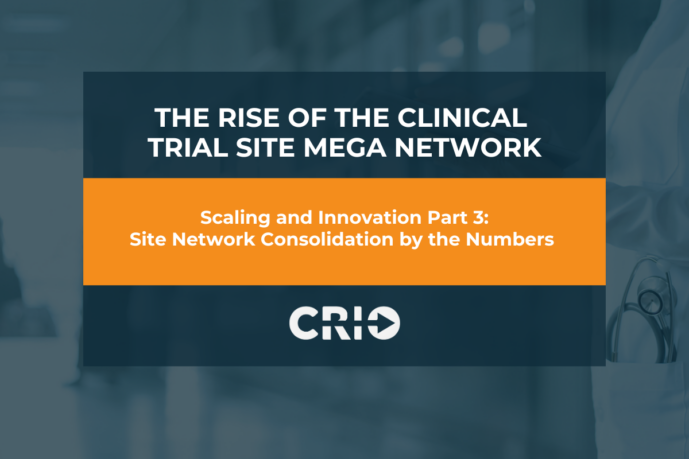In the rapidly evolving landscape of clinical research, site operations are undergoing a significant transformation. In this white paper, we will delve into a series of interviews with leading industry strategists. They’ll shed light on the necessary and long-term changes taking place.
Contributors and Their Insights:
We had the privilege of gathering insights from esteemed contributors who bring diverse perspectives to the table. David Blume, Edgemont Partners; Sean Stanton, founder of Compass Research; Dr. James Greenwald, Medex Healthcare Research (now IMA Research); Dr. Hans Hoeck, Trialcare; Dustin Caldwell, Optimed Research; Barry Lake, Devana Solutions; and Amanda Wright, Javara all shared their valuable perspectives.
A Necessary Transformation:
The industry is becoming increasingly complex and competitive. Sites need to evolve to meet the demands of sponsors, regulators, and patients. Consolidation will become an increasing trend to ensure the best-in-class quality of data collection, patient safety, and adherence to regulatory standards.
Challenges and Opportunities:
While the transformation towards digitization and scale brings significant opportunities, it also presents challenges. Contributors point out hurdles such as financial constraints, operational complexities, and the need for advanced technology and infrastructure. However, they also highlight the potential benefits, such as increased collaboration, knowledge sharing, and the ability to attract high-quality studies and sponsors.
The Path Forward:
To navigate this transformative journey successfully, the contributors stress the importance of strategic planning, partnerships, and embracing technological advancements. They recommend:
- collaboration among sites
- leveraging centralized platforms
- implementing robust data management systems
- and developing strong networks with sponsors, CROs, and other stakeholders
Conclusion:
Altogether, this interview with leading strategists sheds light on the ongoing transformation of clinical research site operations towards professionalization and scale. While challenges lie ahead, the benefits of this consolidation are evident: improved quality, increased efficiency, and enhanced competitiveness. By embracing this transformation and adopting strategic approaches, clinical research sites can position themselves for long-term success in an ever-changing industry.
Next Steps:
Afterwards, catch up on the second part of this blog series where we explore the consolidation and reinvention of site networks, offering further insights into the evolving landscape of clinical research sites.
Related Reading: The Consolidation and Reinvention of Site Networks, Pt. 2





